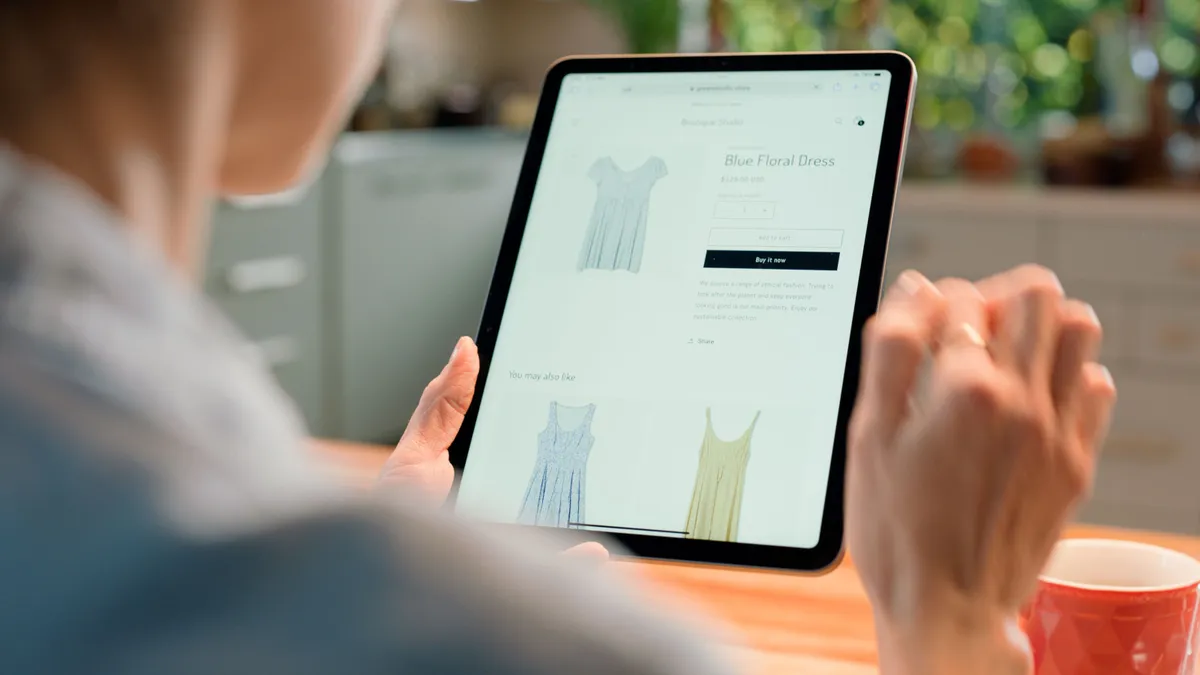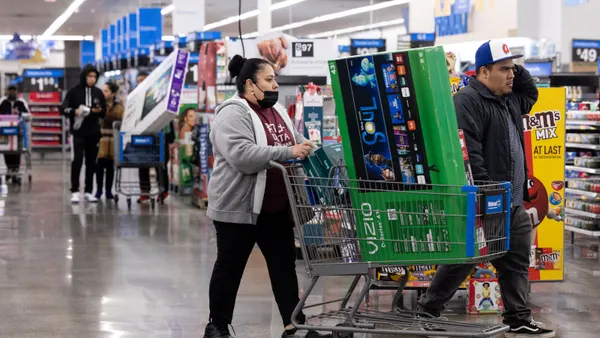Fraudsters posing as merchants and consumers are working together to defraud buy now, pay later companies, according to an executive with the payments company Block.
Yuliya Kazakevich, global head of merchant risk for Block-owned Cash App, outlined the little-discussed type of fraud, which involves collusion between fake merchants and fabricated shoppers, at a fintech conference in Las Vegas last month.
The company’s buy now, pay later service Afterpay recently began seeing such merchants sign up for the service, then work with other bad actors posing as consumers who make fraudulent purchases and leave Afterpay with the bill, she said.
“You see a merchant that signs up for Afterpay, and then they’re colluding with the consumer," Kazakevich said during a panel at the Money 20/20 conference on Oct. 26. “There are transactions being created, but the consumers just walk away.”
This type of fraud doesn't seem to be singled out in any of the comprehensive studies or surveys on payments fraud, making it difficult to say how often it happens.
But consultants who follow the industry said payments companies see it frequently.
A spokesperson for Oakland-based Block did not respond to messages inquiring about Kazakevich's comments.
This kind of fraud — which is sometimes referred to as "self-pay" — isn't new, according to analysts and consultants who follow the payments industry.
The merchants and consumers who perpetuate these scams are actually criminals using fabricated identities, said Christopher Uriarte, a partner at the consulting firm Glenbrook Partners.
“This is something we've been seeing for many years," Uriarte said. “But the newest form is definitely taking advantage of BNPL, because BNPL is very fast and very transactional in nature,” and fraudsters have found a way to exploit that speed.
The advent of generative artificial intelligence may have also accelerated this type of fraud, he said.
The fraudsters generally use synthetic identities created from stolen consumer data such as Social Security numbers, Uriarte said, adding that artificial intelligence makes it easier to create multiple false profiles on a service like Afterpay using someone else's information.
"You would be stupid to use your own identity" committing this type of fraud, he said.
Keith Barnett, an attorney at the law firm Troutman Pepper, suspects this kind of fraud is more common on bigger-ticket items.
"I don't know why you would do this unless you were getting at least four figures," he said.
And with the pay later industry increasingly offering its services for more expensive items like concert tickets and medical procedures, collusion between fraudulent merchants and consumers could become even more common, Barnett added.
The fraud takes many forms, he said. In some cases, the consumer says they didn’t receive the goods or services they ordered and demands a refund, and then both the consumer and the merchant disappear after the refund is given, Barnett said.
He noted that BNPLs can protect themselves in a number of ways, including comprehensive checks on merchants before agreeing to work with them, although he conceded that such diligence can be expensive and time consuming. And "nothing is foolproof," Barnett added.













